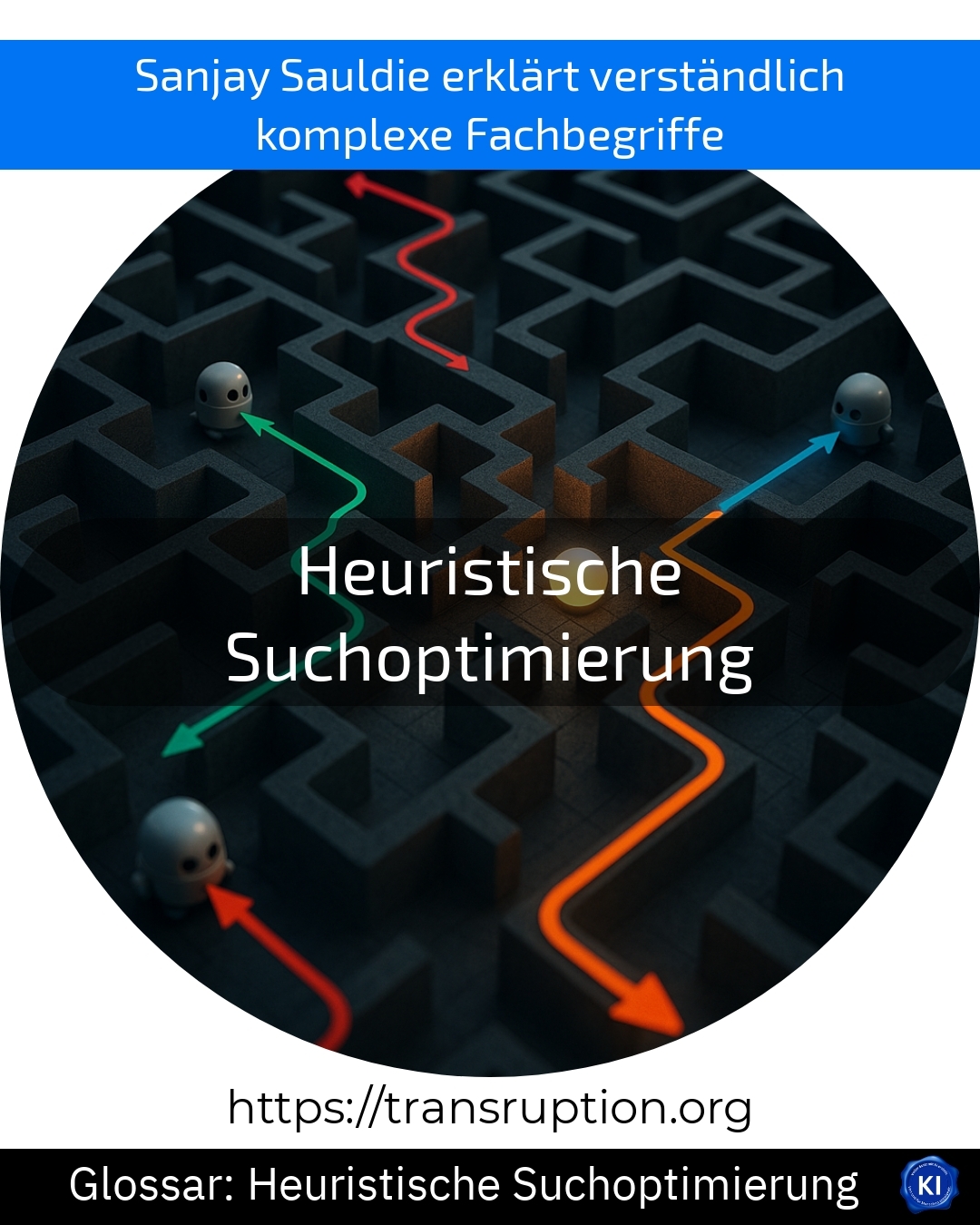Heuristic search optimisation is particularly relevant in the areas of artificial intelligence, automation, big data and smart data. The term describes methods that enable computers and programmes to find solutions faster and more efficiently without having to try out all the possibilities individually.
Instead of going through every option, as with a classic search algorithm, heuristic search optimisation uses intelligent "shortcuts". It incorporates empirical values and assumptions about good solutions. This saves a lot of time and computing power, which is particularly important for very large amounts of data or complex problems.
A simple example: Imagine you want to find the fastest route from A to B on a huge map. A normal algorithm would check all routes. The heuristic method, on the other hand, takes into account, for example, how far away A and B are or in which direction they lie, and concentrates on promising routes.
Heuristic search optimisation is therefore particularly valuable when quick decisions or analyses are required, for example when controlling robots, evaluating large amounts of data or optimising production processes using artificial intelligence.















